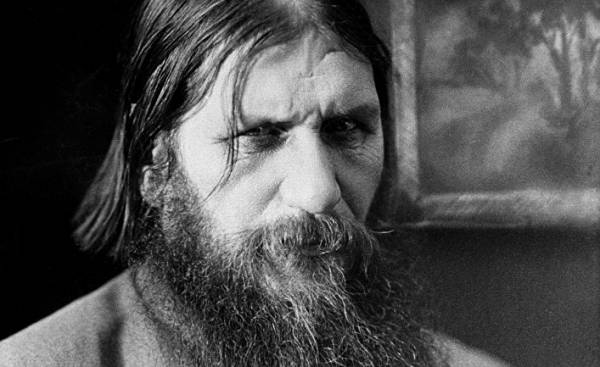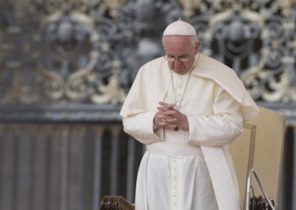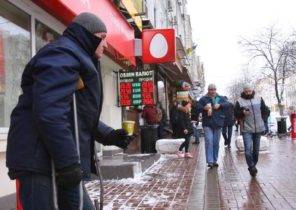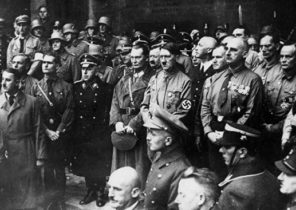
When on 14 July 1789 Parisians stormed the hated fortress-prison the Bastille, and it is anticipated the revolution of world-historical importance, Louis XVI, while in Versailles, near Paris, wrote in his diary: “rien” (nothing). And it most likely touched his unsuccessful hunting that day, and not necessarily the situation in the capital. Because of her he didn’t even know, and this to some extent testifies to the world, far from reality, which was hiding the king and the courtiers. Four years later, Louis and his wife was beheaded on the guillotine.
In fact, this example was supposed to be the Tsar of Russia, Nicholas II before his eyes, when he in February 1917 went to Bet. For several weeks workers staged strikes and demonstrations at factories of military importance, in Petrograd (the name of the capital Saint Petersburg with the beginning of the war) and in Moscow, the soldiers deserted EN masse, and the supply of food during the severe winter has largely weathered the crisis. But the fact that their own people have long called the Emperor “king-hunger”, Nicholas did not want to believe. What the result of those events would be his overthrow and the murder of his family, the 19th ruler of the Romanov dynasty and could not imagine.
How quickly the autocrat may lose their position — this documentary tells the “the overthrow of the king — the death of the Romanovs”, shown on Tuesday in primetime on ZDF channel. As is customary in our time, Oliver hamburger (Oliver Hamburger) and Stefan Brauburger (Stefan Brauburger). decorate the picture of the many game episodes, primarily illustrating the private life of the family, the head of which at the time of the census called himself a “master of the Russian land”. Political differences between the bourgeois elite and the revolutionary party, the councils of workers ‘and soldiers’ deputies and the state Duma (Parliament), peasants and workers, the army and the rear, the Russian and other peoples of the multinational Empire, they say, perhaps the opposite.
Nicholas II never wanted to be king. But since his uncle died childless at the age of 21 years, father of Nicholas, Alexander III inherited the throne. At the age of 12 years, Nicholas has witnessed the assassination of his grandfather Alexander II with the use of bombs, which cost last life. It remains to add to this demonstrably conservative upbringing that caused it since the accession to the throne in 1894 to adhere to inherited the autocratic system of government. The necessary qualities such as caution, political skills and ability to understand people, he did not possess.
However, in the face of his distant cousin Alice of Hesse-Darmstadt, he found a wife who was devoted wholeheartedly, that was a rarity among monarchs of the time. Alexandra Feodorovna, as it was called after the conversion to the Orthodox faith, was perhaps the most important ally of the king, and this fact has resulted in serious problems with the beginning of the First world war. Being born German, have difficulty talking in Russian and French, for a large part of society, the Queen was a potential cheater. After giving birth to four girls, she in 1904, finally came the coveted heir to the throne, which could ensure the continuation of the Romanov family. But he suffered from an incurable blood disease, and it was a state secret.
Caring for the Prince had acquired bizarre forms. The desire to make of the mystery disease was still a harmless option. The machinations of the wandering Siberian monk Rasputin, who soon turned his personal access to the Royal family in a profitable business for the provision of services of any kind — maybe even sexy, all the more corroded the connection of the Romanovs with their subjects. After the courtiers were murdered Rasputin in December of 1916, even Nicholas did not dare to punish the murderers. Rasputin’s prophecy that the power of the king after his death will not last longer than six months, come true.
The limitations of the “autocracy” of Nicholas appeared in 1914, when he unwillingly was forced to mobilize troops against his cousin, German Kaiser Wilhelm II. In 1905 the king, of course, with terrible cruelty suppressed the revolutionary excitement. But the state Duma, to which he still agreed, despite all its limitations, has become a factor of power in which dominated the majority of, possessing a positive attitude to the Entente.
“Here we don’t need to win the love of the people” — this quote from a letter of the Queen, his grandmother Queen Victoria of England sounds in the film. “We don’t pay attention to the chatter”. This phrase perfectly illustrate the alienated life in a luxurious Royal residences in which the Romanovs were a happy family life and simply ignored the difficulties of his subjects.
In the winter of 1916-1917 the people, especially, suffered from hunger. Besides, lacking firewood, and mainly hopes to improve the situation. Because the hated war that the European powers long ago brought to Russia, didn’t end. The continuation of this war was considered a matter of honor, which cost the strength is that toast with a glass of champagne, but not godivsheysya to become the basis of the policy, claiming popularity among the people.
When February 23 demonstrating workers, among whom were many women, reached the very center of Petrograd, Nicholas, being in a Rate in the Belarusian Mogilev, ordered the same as in 1905, to open fire on them. But the guards, who might be able to implement it, have long suffered heavy losses at the front. Inexperienced recruits who had to oppose the strike, mutinied and joined the workers.
How low have fallen the last representatives of the Romanov dynasty, showed the reaction of their generals. Faced with a choice — save his regiment, or to continue the war, military chiefs chose a war that, again, to some extent, allows to judge about their political foresight. Since the liberal-conservative forces in the Duma could not achieve peace, and moderate councils did not interfere with them, all the responsible persons gave the battlefield the only group that stood for peace, the radical Bolsheviks.
The German government, being well aware of the situation in Russia, has written to the leader of the Bolsheviks Vladimir Ilyich Lenin from his exile in Switzerland to Russia in a sealed train. Six months later, on 25 October according to the Julian calendar (Gregorian November 7), Lenin rebelled against the government and established a dictatorship of professional revolutionaries.
Hatred, and in order to prevent the deposed king became enemies sort of a symbolic figure, the Soviet leadership ordered to execute him. July 17, 1918, the order was executed in the Urals, in Yekaterinburg, according to one of rasstrelschikov, “as quietly as possible”. Nicholas, his wife and five children buried in a common grave. Their remains were exhumed only in 1991. In 2000 the Russian Orthodox Church canonized the last Russian Tsar canonized.
So you can briefly describe the course of events the most important revolution of the twentieth century. The other question is, did it subsequently comprehend.







